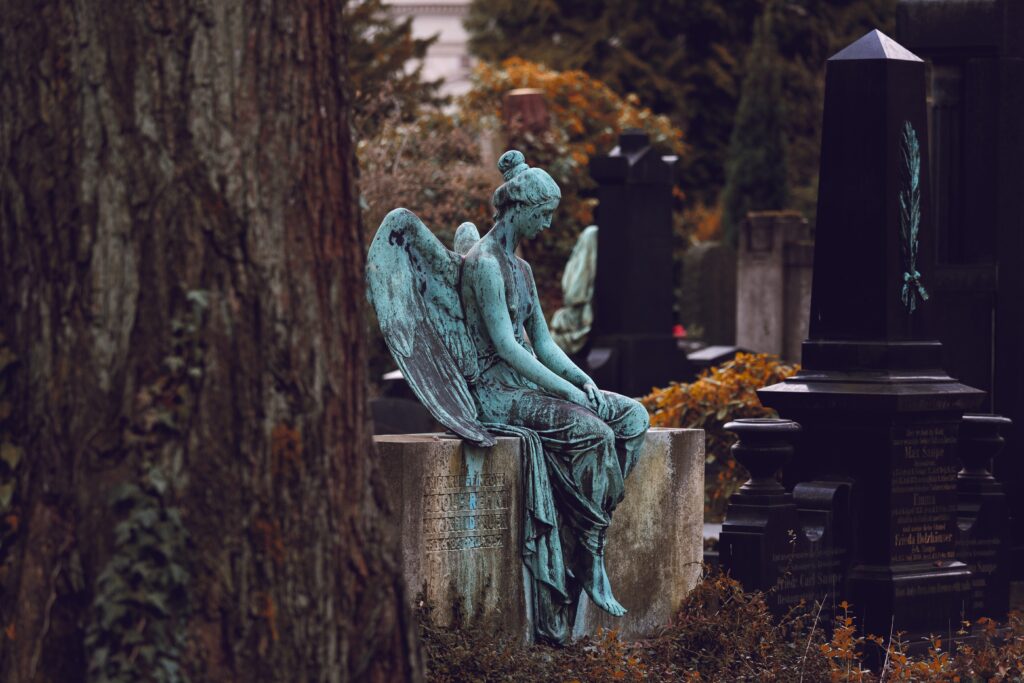Into the Darkness and Out of Hope

The bleak dark corners of life are where some of the most interesting stories are hidden behind shame and unspoken cultural norms telling us to keep those most vulnerable parts to ourselves. But those are the stories that matter the most, the ones that keep us suffering in silence, too afraid to show our “weakness” and too terrified to ask if anyone else has an inkling of understanding in a similar experience. Even with billions of people on the planet, it’s easy to feel alone, but in just a few words on the page, we can feel a kinship to characters. I read selfishly, searching for myself on the page and I write freely, exposing myself to unknown recipients of my words.
I was raised in a restrictive religion where knocking on strangers’ doors was required. While I no longer spend my weekends ringing doorbells, I’m still inspired by the many years I spent highlighting bible passages. The tales of monsters, miracles, battles, parables, plagues, and immaculate conception were styled in such a way that they have lasted for thousands of years. A nun turned social studies teacher told my middle school class that “everyone should read the bible, even if just as literature.” Standing firmly behind my mother’s beliefs, I didn’t understand my teacher’s words. I wanted to retort that it was more than just literature. Years later, I came to see the wisdom in her comment, for she retained a deeper understanding of the bible’s cultural and historical influences well after she laid down her habit which made her a more effective instructor. Her biblical background prepared her just as reading Ecclesiastes taught me about poetry, Genesis about world building, and Revelations about arresting the reader’s attention.
My scriptural upbringing was woven so tightly in my everyday life that I looked for little bits of control. I wondered how it was that the world was advocating further equality for women, but religion was teaching me to yield to the discretion of men. I couldn’t balance the growing support for same-sex relationships in the mainstream while being shown scriptures as to why I should lean to only one side of my attractions and not the other. I found my sense of control in two of life’s dark corners, namely an eating disorder and self-harm. For the first time, my religious and secular worlds were in agreement, because in the media (and especially within the Black community), eating disorders were described as a “white girl problem” and within my religious community, I was going against god.
In my dark corner, I lived a story that held a stigma, a story few people can hear without cringing at the thought of such a low. But it was just one of many possible manifestations of alienation and one of many stories people are reluctant to hear. I write knowing my words may only speak to those who have contained themselves to corners suppressing their sentiments. Though now I consider the weight of each word, not pounds on a scale, and cut out phrases in revision instead of skin.
My experiences are not the only stories I tell, but it would be disingenuous to say they haven’t shaded my worldview and colored my writing. Male centered works like Beowulf drew me in with its cadence and kennings but left me wondering what device a female heroine of the time would use to slay her monster. And furthermore, what are the many untold female stories that perished unpenned in the minds of would-be writers who never had the opportunity to ink passion to paper? I write speculating about tales never told and have found in them ample room for the imagination.
I write into the depths of despair, and out of hope, with the intent to provide a lens, stripped of shame, to serve as a reflection, exploration, and validation of stories often secreted by stigma and hushed in history.

